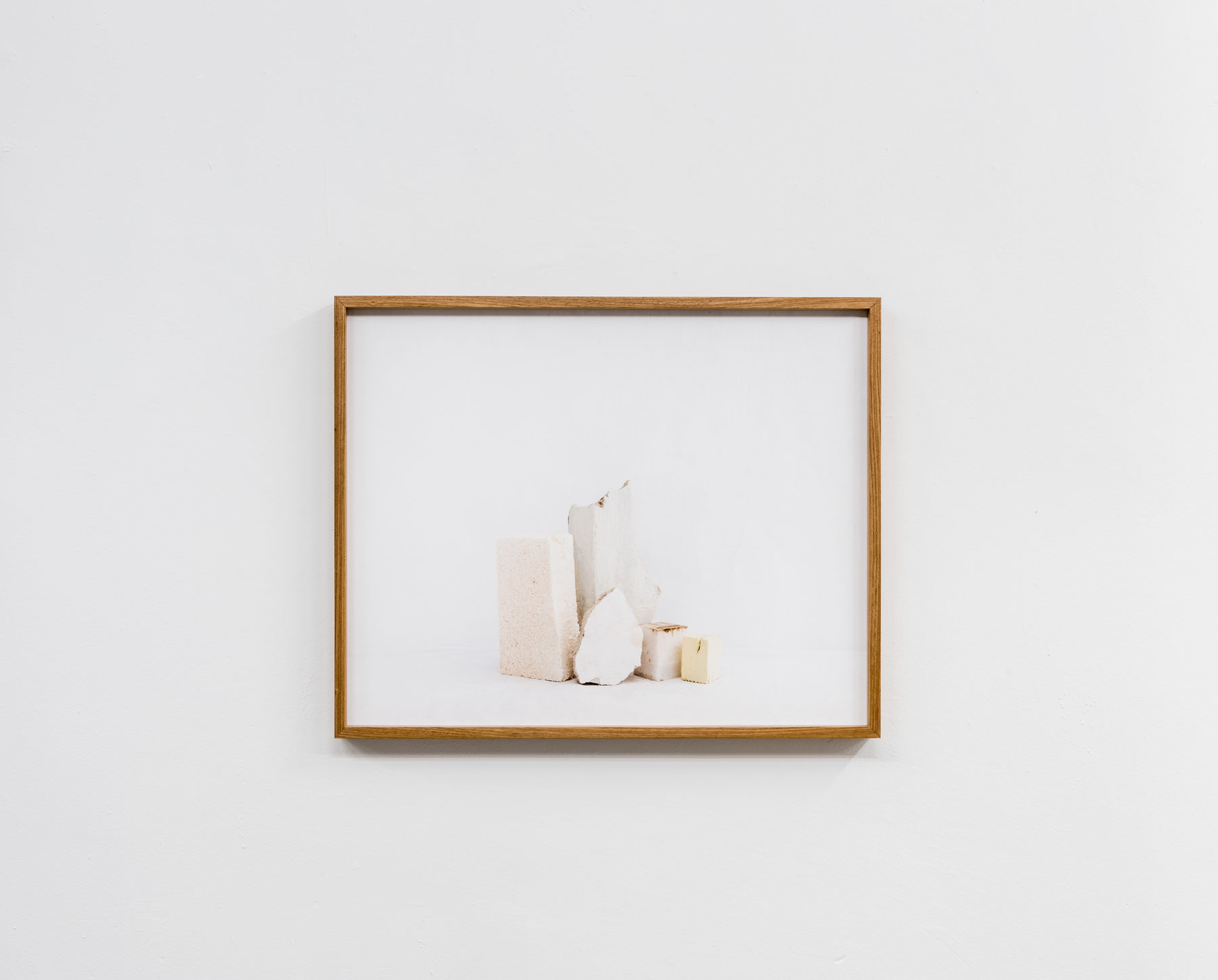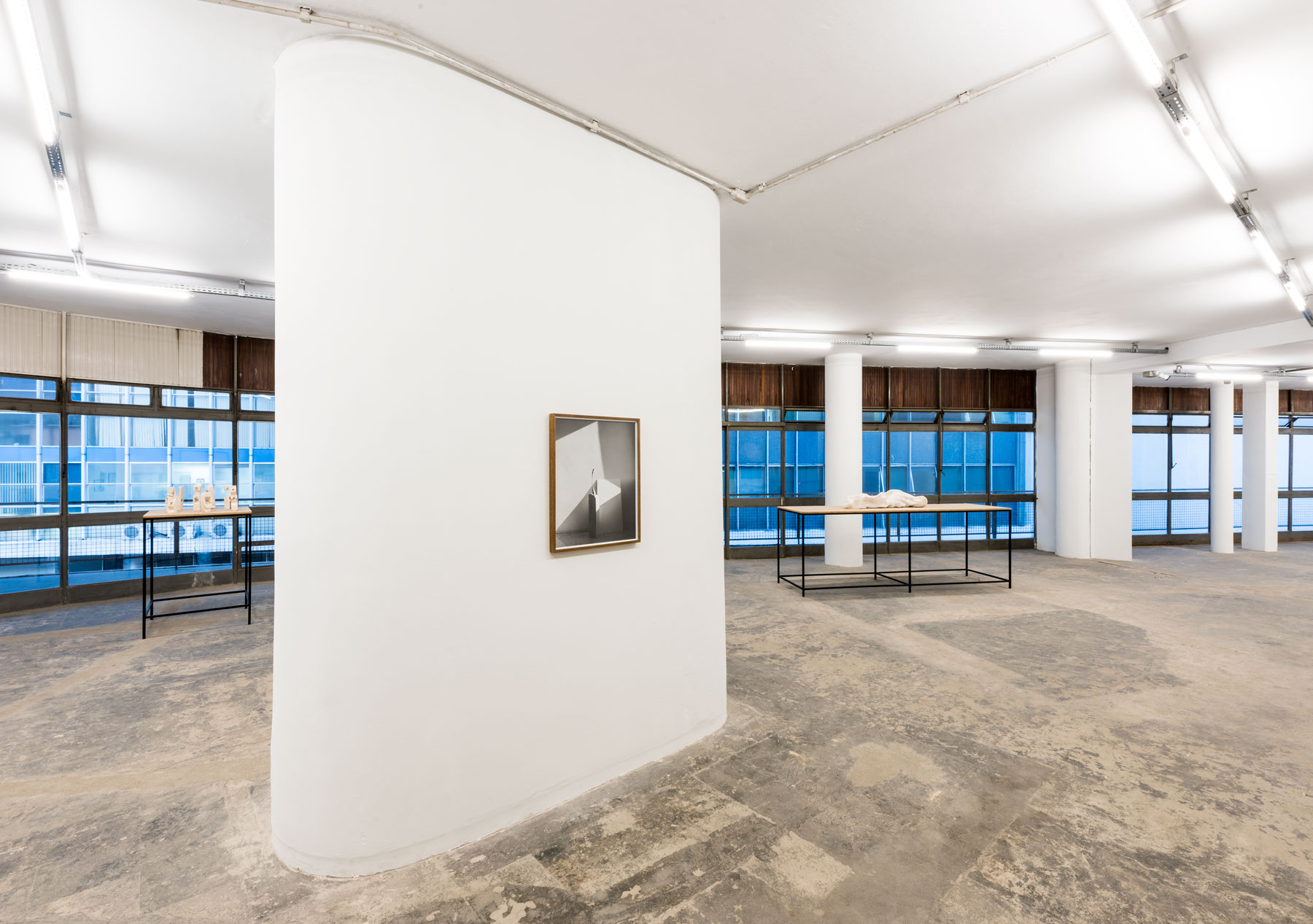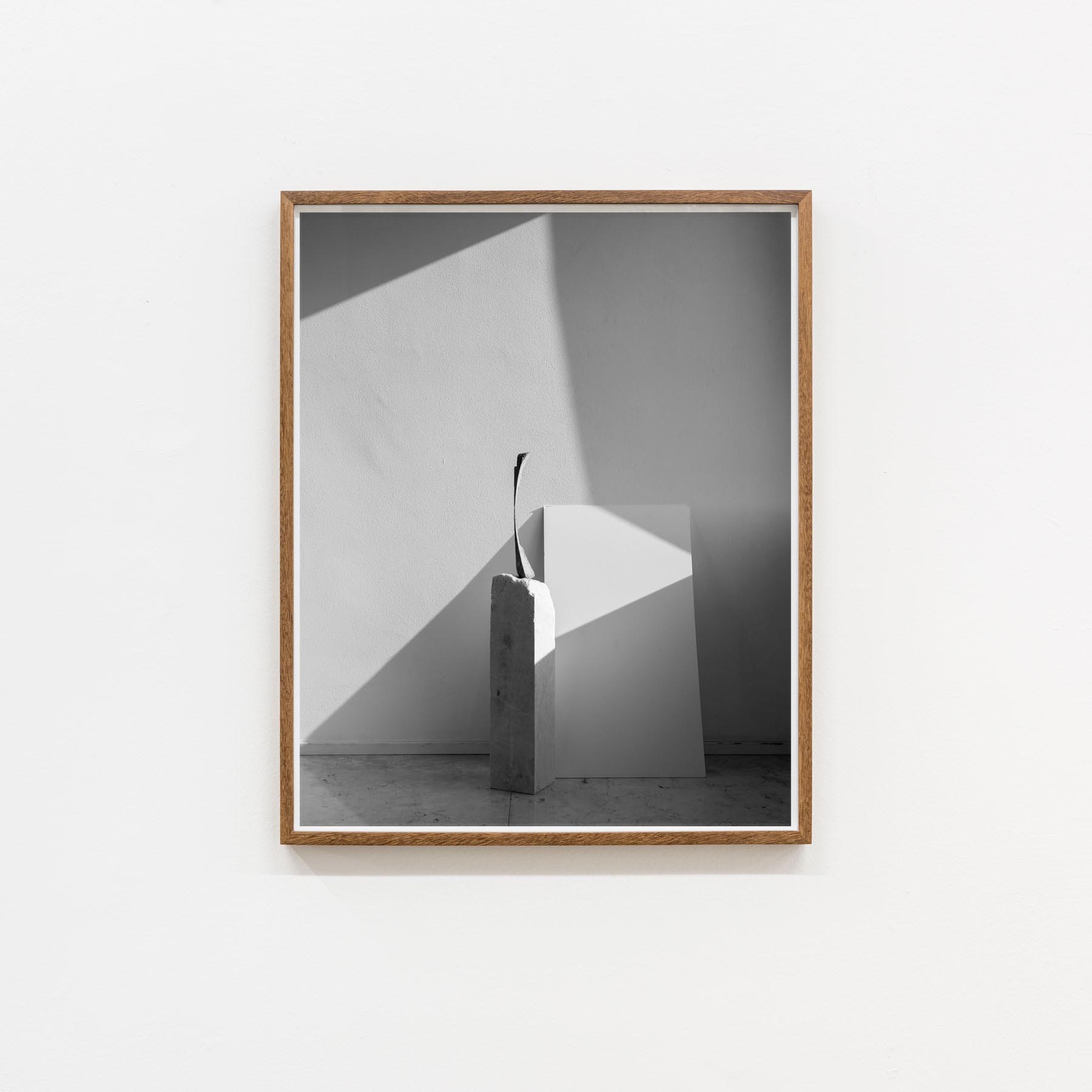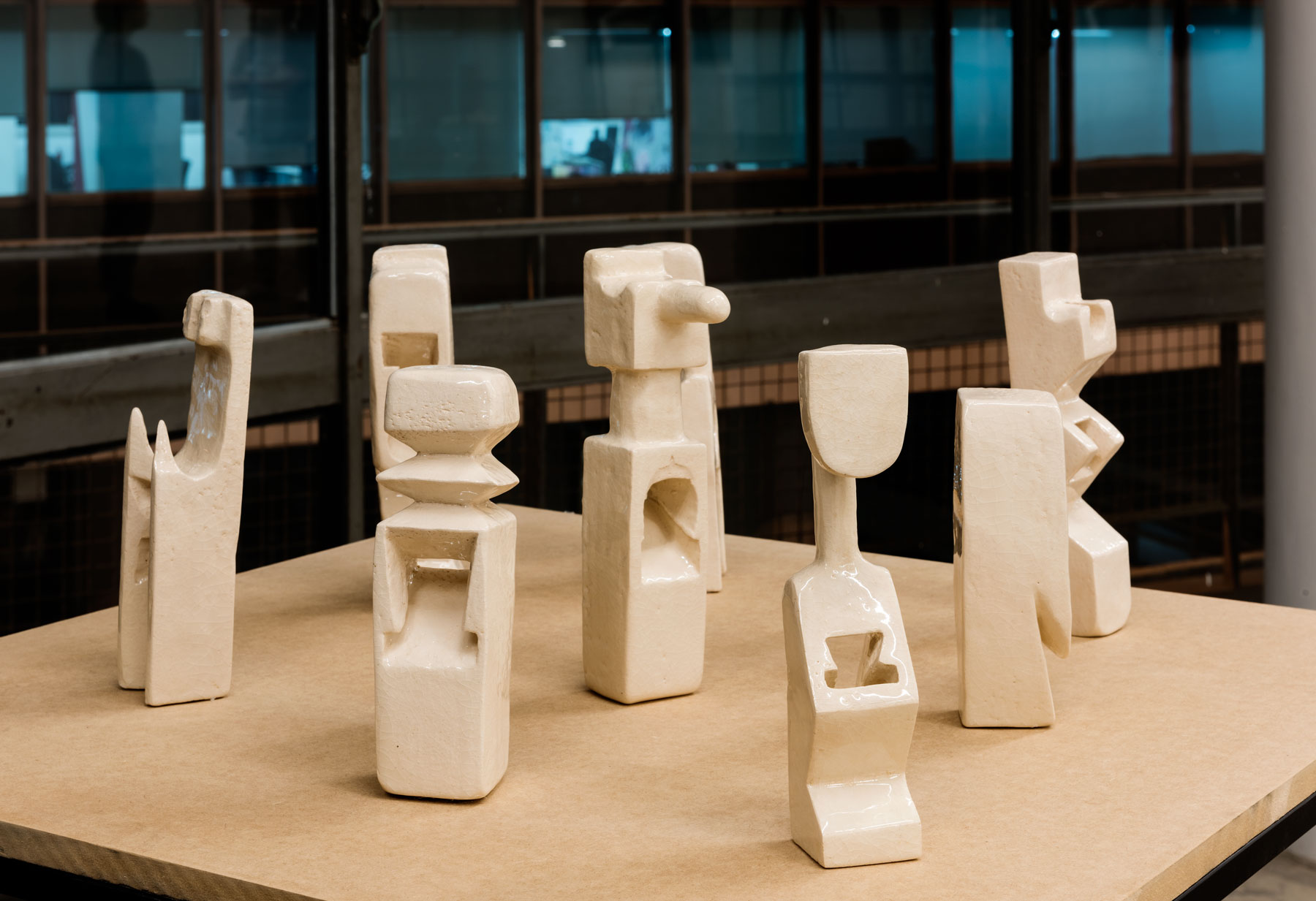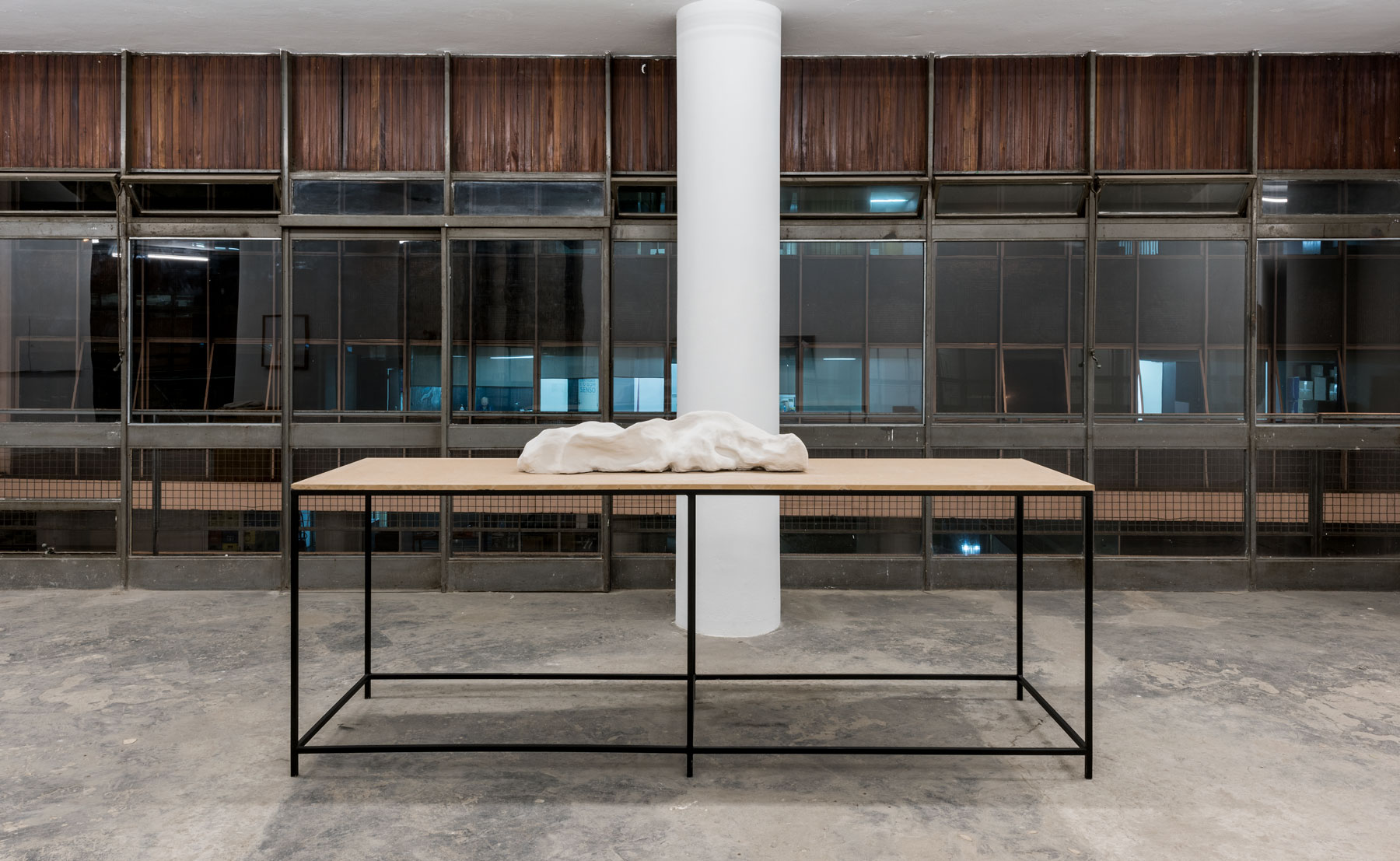
The first edition of the year of Pivô Welcomes, a program dedicated to hosting projects previously formatted by artists, curators or cultural producers that shares conceptual affinities with the institution’s program, presents the exhibition “Works and Days” by Italian artist Marco Maria Zanin and curated by Jacopo Crivelli Visconti.
The exhibition questions how distinct peoples relate to memory and time passage through ruins. Zanin, specifically chose Italy and Brazil as the departing point for his research, the first place, carries biographical aspects: the rural landscape of the Veneto, region of Northern Italy, is where the artist’s family comes from and where his earliest memories are rooted- many linked to ancient rituals and traditions, in which the beliefs, the knowledge and the needs of land workers are inextricably intertwined. The second place is São Paulo, where Marco has lived for extended periods. The city’s distinct temporality –or maybe a pathological pursuit for the future- is probably what makes the megalopoli’s population unaware , or careless, about it’s own past. What the artist witnesses and reveals, by placing himself both conceptually and physically on the threshold between these two universes, is the clash between radically distinct and ,apparently, irreconcilable worldviews.
Zanin takes the different debris of these worlds, and reproduces the rubble of the demolition of the buildings in the center of São Paulo in porcelain, as if they were treasures to be preserved. The objects belonging to the ancient rural civilization of the Veneto, in their turn, are cutted, revealing forms that resemble objects of cult of Afro-Brazilian religions. In these gestures of memory transformation, Zanin investigates the possibility of the ruin to reveal the existence of other temporalities and narratives under the official History, and proposes the exercise to create hypothetical historical layers in any debris.
Most of the works on show were produced by the artist in the context of the Pivô Research residency program. Last year, Zanin spent a long period in the center of São Paulo, where he came into contact with the dynamics and socio-political context of the region surrounding the Copan building, which, despite housing an extremely diverse population, is still itself a kind of ruin of modern thought, in which layers of time and history overlap and resignify themselves.
About Marco Maria Zanin
Marco Maria Zanin (Padova, Italia, 1983). He first took a degree in Literature and Philosophy, and then in International Relations, obtaining a Master’s degree in Psychology.
He received Italian awards and prizes such as Level 0 at ArtVerona (2016) and Agarttha Arte (2014), an honorable mention at Fabbri Prize (2016) and in 2016 was shortlisted for the Talent Prize. Recent group exhibitions include Attualità di Morandi, MAMBO, Bologna; Giovane Fotografia Italiana, Fotografia Europea, Musei Civici, Reggio Emilia; From Object to Exposure, TRA, Treviso; Uno Sguardo Italiano, Rencontres d’Arles, Arles; Duas Naturezas, Central Galeria, San Paolo; Lo Spazio del Demiurgo, Palazzo Madama, Torino; Wenn wir dich nicht sehen, siehst du uns auch nicht, Huize Frankendael, Amsterdam; Show Off, Salsali Private Museum, Dubai.
Recent solo exhibitions include Dio è nei frammenti, curated by Daniele De Luigi, Galleria Civica di Modena, Modena; Demonumento, curated by Alessandra Mauro, Ambasciata del Brasile, Galleria Candido Portinari, Roma; O lado direito do avesso, curated by Paulo Miyada and Julia Lima, Oficina Cultural Oswald de Andrade, São Paulo.
In 2015 he founded in Padova, Italy, Humus Interdisciplinary Residence, an artist-in-residence program aimed at fusing the contemporary art world and the suburban areas which are still tied to the ground.
Lives and works between Padova and São Paulo.
About Jacopo Crivelli Visconti
Naples, Italy, 1973 Jacopo Crivelli Visconti is a critic and independent curator. PhD in Architecture from the University of São Paulo (USP), is author of Novas Derivas (WMF Martins Fontes, São Paulo, 2014; Ediciones Metales Pesados, Santiago, Chile, 2016). As curator of the São Paulo Biennial Foundation (2007-2009), he was responsible for the official Brazilian participation in the 52nd Biennale di Venezia (2007). Among his most recent recent works as curator of contemporary art are: Memories of Underdevelopment (2017), Museum of Contemporary Art (San Diego, USA), Museo de Arte de Lima (Peru) and Museo Jumex (Mexico); Héctor Zamora – Nonlinear Dynamics (2016), at Centro Cultural Banco do Brasil, São Paulo; Sean Scully (2015), at the Pinacoteca of the State of São Paulo (Brazil); 12th Biennial of Cuenca (2014), in Cuenca (Ecuador). He is a regular contributor to contemporary art, architecture and design magazines, as well as writing for exhibition catalogs and monographs by artists.

 Português
Português
